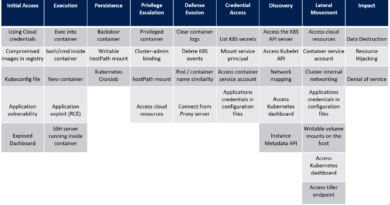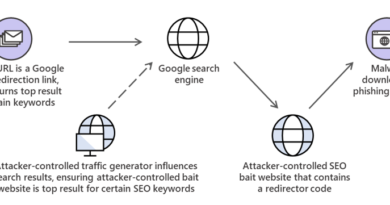The Many Paths To A Cybersecurity Education

Ask a room full of cybersecurity professionals about their educational background and how they got started on their career path and you’re going to get a myriad of different answers.
From one perspective, that’s frustrating. It’s hard to confidently recommend a path for people starting out when almost any path can end up at your desired destination: a long, sustainable career in cybersecurity.
The good news? Cybersecurity is a career path where your hard work and efforts will have a dramatic effect on your success. The lack of a degree, certification, or other credential won’t necessarily hold you back…but they definitely can help you.
Mindset
Before we dive into specific education options, let’s look at the type of thinking and personality that leads to a successful cybersecurity professional, regardless of the cybersecurity role.
If you are:
● Excited about learning constantly
● Eager to seek out different points of view
● Persistent and doggedly determined
Then a career in cybersecurity will probably be a great fit. I can’t stress how important this mindset is. The technology aspects will come and go at a rapid pace. These areas can be learned and will need to be re-learned time and time again.
These personality traits will help ensure that you’re not only successful but have a fulfilling career in the field. Cybersecurity presents a unique challenge in that it covers all aspects of technology. There’s a near endless opportunity to learn and apply that learning to drive real-world outcomes.
But if you’re not excited about the constant learning required to deal with an ever-changing landscape, not eager to evaluate multiple viewpoints, and give up when the going gets tough, cybersecurity is not a good fit.
If you’re still reading, then let’s move on to the more direct aspects of getting ready for a career in cybersecurity: education.
Undergraduate Degree
Over the past few years, a number of cybersecurity-focused undergraduate programs have been rolled out around the world. The challenge here is availability.
Cybersecurity-focused programs are not yet widely available. That limits this option for most people. However, an undergraduate degree in computer science, computer engineering, math, finance, or business will all serve you well. Basically any degree that helps you better understand how technology works, how technology is used, or how business runs is going to help…significantly.
Certifications
While their value if often debated, certifications can provide a huge boost to the start of your cybersecurity career. The number one pushback against certifications is that they usually are not hands-on.
Hands-on experience is absolutely critical, but third party validation of your knowledge is probably more important early in your career. Certifications from reputable organizations can help give you a leg up and make that first step on your career path a little bit easier.
Your first certification(s) should focus on broad cybersecurity topics. Avoid technology-specific certifications at first. This will keep your options open instead of tying yourself to a specific technology.
Experience
The most valuable – and most difficult – type of education is hands-on experience. You typically have to get in the door somewhere…anywhere… before you can start to get hands-on experience.
There are other ways to demonstrate that you can apply what you’ve learned. Here are a few ideas to help get you started;
● Review some code or an architecture for an open source project. Write up the results and share them
● Analyze a cybersecurity headline and provide a risk assessment on the related technologies/services
● Attend a local meetup where they are hosting an activity or a local (or online) CTF
All of these options are free, give you a chance to apply some of your knowledge, and are perfect for sharing with others in the community.
No Wrong Path
The only wrong step on the path toward a career in cybersecurity is not taking that first step.
Cybersecurity is an exciting career choice that contains a multitude of roles covering almost everything you can imagine. If you enjoy tackling complex problems from a number of different angles, it’s hard to ask for a more compelling career choice. The fact that it’s one of the hottest areas in tech is just icing on the cake!
What is your inspiration for a pursuing a career in cybersecurity? What steps have to you taken towards that goal? Let me know in the comments below or on Twitter where I’m @marknca.
Read More HERE



